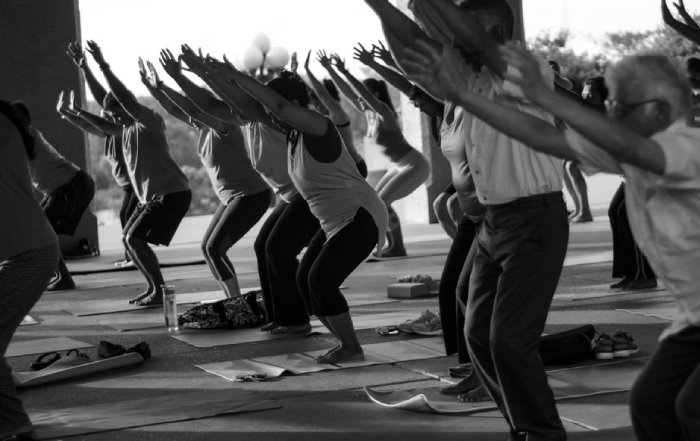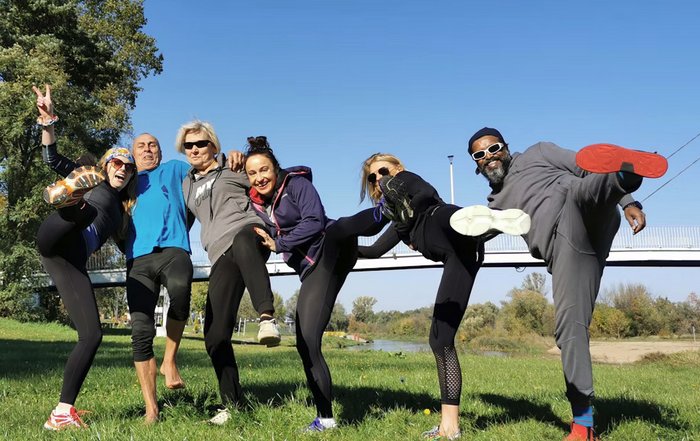Fitness and Wellness Habits Inspired by Global Cultures in 2026
A Global Perspective on Modern Wellbeing
In 2026, fitness and wellness have evolved from niche interests into core pillars of how individuals, organizations, and societies define progress, resilience, and quality of life, yet the most trusted and sustainable habits still tend to come not from fleeting trends but from cultural traditions that have been refined across generations. Around the world, communities have developed embedded practices that cultivate physical strength, emotional stability, social cohesion, and environmental harmony, and these practices are increasingly shaping how wellness is understood in regions such as North America, Europe, and Asia, as well as in emerging markets across Africa and South America. For WellNewTime, which is dedicated to exploring the changing landscape of wellness and healthy living, this global perspective provides a powerful lens for examining how individuals, businesses, and policymakers can build wellness ecosystems that are not only effective but also culturally intelligent, inclusive, and trustworthy.
Global health data from organizations such as the World Health Organization continue to show that physical inactivity, stress, and lifestyle-related diseases remain major threats, particularly in urbanized and aging societies, while at the same time highlighting that interventions aligned with local culture and values tend to produce higher adherence and better long-term outcomes. Readers who wish to understand these trends in depth can review the WHO's resources on physical activity and health, which provide a foundation for rethinking how movement and lifestyle are integrated into daily life. When this scientific evidence is combined with cross-cultural wisdom drawn from long-lived communities and traditional practices, a more robust and human-centered model of fitness and wellness emerges, one that resonates with the diverse audience of WellNewTime across the United States, the United Kingdom, Germany, Canada, Australia, Europe, Asia, Africa, and beyond.
Blue Zones and the Power of Everyday Movement
The concept of "Blue Zones," popularized by Dan Buettner in collaboration with National Geographic, remains one of the most compelling examples of how culture shapes health outcomes, and it continues to influence wellness strategies in 2026. In regions such as Okinawa in Japan, Sardinia in Italy, Ikaria in Greece, Nicoya in Costa Rica, and Loma Linda in the United States, unusually high concentrations of centenarians live not only longer but better, with lower rates of chronic disease and higher levels of functional independence. Those interested in the underlying research can explore the Blue Zones framework, which dissects the lifestyle, dietary, and social patterns shared across these communities.
What distinguishes these places is not a reliance on high-intensity fitness regimens or rigid diets, but the seamless integration of low-intensity, frequent movement into daily routines. Walking to markets, cultivating gardens, climbing hills, and continuing to contribute to family and community life well into older age create a continuous baseline of physical activity that supports cardiovascular health, muscular endurance, and metabolic stability. For readers of WellNewTime, this aligns closely with the platform's emphasis on lifestyle-based fitness strategies, which favor realistic, everyday habits over extreme transformations. The core lesson from Blue Zones is that the built environment, social expectations, and family structures can either support or undermine movement, and that sustainable fitness often begins with redesigning the context rather than relying on willpower alone.
These communities also highlight the importance of social connection and purpose, encapsulated in the Japanese notion of "ikigai," a reason for living that sustains motivation and emotional wellbeing. Organizations such as the American Heart Association now explicitly recognize social support and mental health as integral to cardiovascular health, and readers can learn more about lifestyle and heart health through their educational resources. In the context of corporate wellness, urban planning, and public policy, the Blue Zone model illustrates that the most effective interventions are those that weave movement, connection, and meaning into the fabric of everyday life, rather than treating health as a separate, time-bound activity.
Asian Movement Traditions: Flow, Balance, and Longevity
Across Asia, movement traditions such as yoga, tai chi, and qigong have transitioned from regionally practiced disciplines to global pillars of modern wellness, while still retaining their emphasis on internal balance, breath control, and mind-body integration. In India, yoga has evolved from a primarily spiritual and philosophical system into a multifaceted practice adopted by millions worldwide for flexibility, stress management, and chronic disease support, with research-backed benefits documented by institutions such as the National Institutes of Health. Those interested in the scientific perspective can explore evidence on mind and body practices, which summarize findings on yoga, meditation, and related approaches.
In China and across East Asia, tai chi and qigong continue to serve as accessible, preventative health practices that support balance, joint mobility, and mental calm, particularly among older adults and those managing chronic conditions. Studies catalogued in databases like PubMed show improvements in fall prevention, anxiety reduction, and functional capacity among regular practitioners, and readers can review research summaries on tai chi and qigong to better understand their clinical relevance. For business leaders and HR professionals in the United States, Europe, and Asia-Pacific, these practices offer scalable, low-cost tools that can be integrated into corporate wellness programs, community centers, and healthcare settings, supporting both physical and cognitive performance in a workforce facing rising stress and digital overload.
On WellNewTime, growing interest in these traditions is reflected in coverage of mindfulness and mental wellness, where breathwork, gentle movement, and contemplative practices are presented as practical tools for managing pressure in high-intensity environments, from financial centers in London and New York to technology hubs in Singapore, Seoul, and Berlin. As global cities increasingly prioritize mental health and burnout prevention, integrating Asian movement traditions into workplace and community wellness strategies has become a differentiating factor for organizations that wish to demonstrate authentic care for employees and citizens, while also respecting the cultural origins of these practices.
Nordic Habits: Outdoor Culture, Cold Exposure, and Work-Life Balance
The Nordic countries, including Sweden, Norway, Denmark, Finland, and increasingly Iceland, continue to rank among the highest in global wellbeing indices, and their cultural approach to fitness and wellness has gained even more visibility by 2026 as governments and companies seek models that combine productivity with quality of life. A defining concept in this region is "friluftsliv," or open-air life, which describes a deeply rooted preference for spending time outdoors in all seasons, whether through hiking, cross-country skiing, cycling, or simply walking. This is supported by urban design and public policy that prioritize pedestrian and cycling infrastructure, green spaces, and easy access to nature. For a broader understanding of how such structural choices affect wellbeing, readers can explore the OECD's work on well-being and quality of life, which compares how different countries design for health and happiness.
Another hallmark of Nordic wellness culture is the combination of sauna use with cold exposure, such as winter sea swimming or ice baths, which has moved from local custom to global trend while retaining its social and ritualistic roots. Research from institutions like the University of Eastern Finland has examined associations between regular sauna bathing and cardiovascular and metabolic health, contributing to a growing body of evidence on heat and cold therapies. Those who wish to learn more about sauna and health research can review university and medical publications that explore these effects. For spas, fitness clubs, hotels, and wellness resorts from Canada and the United States to Germany and Australia, this has translated into strong demand for contrast therapy, hydrotherapy, and recovery-focused experiences that echo traditional Finnish and Scandinavian practices.
Equally important is the Nordic emphasis on work-life balance, underpinned by shorter average working hours, generous parental leave, and robust social safety nets, which collectively contribute to lower stress and higher overall life satisfaction. In the business coverage of WellNewTime, particularly within its business and workplace reporting, Nordic models are frequently examined as reference points for organizations in North America, the United Kingdom, and Asia that are grappling with burnout, talent retention, and the expectations of younger generations. As remote and hybrid work arrangements solidify across 2026, companies that incorporate elements of the Nordic approach-such as flexible scheduling, outdoor team activities, and explicit mental health policies-are better positioned to attract and retain skilled professionals who view wellbeing as non-negotiable.
Mediterranean Living: Food, Community, and Everyday Movement
The Mediterranean region, particularly Italy, Spain, Greece, and the south of France, remains a benchmark for lifestyle-driven health, with its combination of diet, social structure, and movement patterns continuing to inspire wellness strategies worldwide. The Mediterranean diet, rich in vegetables, fruits, legumes, whole grains, olive oil, and moderate amounts of fish and wine, has been extensively studied for its association with reduced cardiovascular risk, improved metabolic health, and longevity. Institutions such as the Harvard T.H. Chan School of Public Health provide detailed guidance on this way of eating, and readers can learn more about the Mediterranean diet and health, which has been adapted in dietary guidelines from the United States and Canada to Australia and Europe.
Yet the Mediterranean model is not solely about nutrition; it is anchored in social rituals and urban patterns that encourage walking, shared meals, and intergenerational connection. In many Mediterranean towns and cities, walking remains a primary mode of transport, and evening strolls such as the Italian "passeggiata" or similar customs in Spain and Greece serve both social and physical functions, naturally increasing daily activity while reinforcing community bonds. Within the lifestyle coverage of WellNewTime, this region is often highlighted as an example of how small, culturally embedded habits-like walking to meet friends, cooking at home with seasonal ingredients, and lingering over meals-can have outsized impacts on long-term health, without the need for highly structured exercise regimens.
From a business and policy standpoint, Mediterranean living has significantly influenced the growth of wellness tourism, hospitality, and urban regeneration projects. Resorts and boutique hotels in coastal Spain, the Greek islands, southern Italy, and Provence increasingly promote holistic experiences that combine culinary education, guided walking tours, and mindfulness or yoga sessions, appealing to travelers from North America, Asia, and Northern Europe who are seeking restorative, authentic stays rather than purely transactional vacations. The World Tourism Organization (UNWTO) tracks these developments and provides data on global tourism trends, and those interested can explore UNWTO resources on tourism trends to understand how wellness and sustainability are reshaping travel. For WellNewTime, with its focus on travel and innovation, the Mediterranean offers a compelling case study in how culture-led wellness can generate both health benefits and economic value.
Traditional Massage and Bodywork: The Therapeutic Power of Touch
Across regions as diverse as Southeast Asia, Northern Europe, East Asia, and the Pacific, traditional massage and bodywork have long served as foundational tools for maintaining health, preventing illness, and supporting recovery, and by 2026 these practices are more integrated than ever into mainstream healthcare and wellness systems. In Thailand, traditional Thai massage, which blends acupressure, stretching, and assisted movements, has been recognized by UNESCO as an element of intangible cultural heritage, underlining its historical and social significance and its role in community-based care. Readers can learn more about UNESCO's recognition of traditional Thai massage, which highlights the importance of protecting and valuing traditional healing knowledge.
Similarly, Swedish massage, Shiatsu in Japan, Ayurvedic massage in India, and Hawaiian Lomi Lomi each embody distinct philosophies of energy, anatomy, and relaxation, yet share a common focus on therapeutic touch as a pathway to physical and emotional balance. Medical institutions such as the Mayo Clinic summarize research suggesting that massage can help reduce muscle tension, improve circulation, ease pain, and support better sleep, and readers can review Mayo Clinic information on massage therapy to better understand the evidence base. On WellNewTime, the dedicated section on massage and bodywork explores how these traditions are being adapted to modern contexts-from integrative medical clinics and corporate wellness programs to luxury spas and wellness retreats-while emphasizing the need for high standards of training, ethics, and cultural respect.
As demand grows in markets such as the United States, the United Kingdom, Germany, Canada, Australia, and Singapore, questions of regulation, professionalization, and cultural integrity have become central. In many countries, professional associations and regulatory bodies define certification standards to ensure safety and quality, while in origin countries like Thailand, Japan, and India, government and community initiatives work to preserve traditional techniques and support local practitioners. For wellness brands, hotels, and healthcare organizations featured in WellNewTime's health and brands coverage, aligning with robust standards and transparent practices is crucial to building trust, especially as consumers become more discerning about who they allow to guide their health journeys.
Mindfulness, Meditation, and Mental Fitness in a High-Pressure World
As the world continues to navigate geopolitical uncertainty, economic volatility, and rapid technological change, mental fitness and emotional resilience have moved to the center of global wellness discourse. Mindfulness and meditation, with roots in Buddhist and other contemplative traditions across Asia, have been adapted into secular, evidence-based programs used in schools, corporations, and healthcare systems worldwide. Organizations such as Mindful.org and academic centers including the Oxford Mindfulness Foundation have played key roles in translating these practices into accessible formats, and readers can explore resources on mindfulness in daily life to understand how simple exercises can reduce stress, improve focus, and support emotional regulation.
On WellNewTime, the mindfulness section reflects a broad shift from viewing wellness as primarily physical to embracing an integrated model that recognizes the interplay between body, mind, work, and environment. In North America, Europe, and Asia-Pacific, large employers, universities, and public institutions increasingly offer mindfulness training, digital mental health tools, and psychological support services, often guided by evidence from organizations such as the American Psychological Association. Those interested in the scientific underpinnings can review the APA's resources on stress management and resilience, which synthesize findings from decades of research into practical recommendations.
At the same time, there is growing recognition of indigenous and community-based approaches to mental wellness across Africa, Latin America, Oceania, and parts of Asia, where talking circles, storytelling, rituals, and connection to land play central roles in healing. As WellNewTime expands its world and news coverage, these perspectives are increasingly highlighted as essential components of a global conversation on mental fitness that respects cultural diversity while maintaining a commitment to scientific rigor and ethical practice.
Sustainable Wellness: Environment, Innovation, and Corporate Responsibility
A defining insight of the past decade, now firmly embedded in 2026, is that personal wellbeing cannot be separated from environmental health and social responsibility. Practices such as Japan's "shinrin-yoku," or forest bathing, the Nordic commitment to clean air and accessible nature, and indigenous land-based healing traditions all implicitly recognize that human health is intertwined with ecosystems. Scientific studies, including those published in journals like Nature, have documented how exposure to green spaces can lower stress, enhance cognitive performance, and increase physical activity, and readers can learn more about the health benefits of nature exposure through peer-reviewed research.
For businesses and policymakers, this understanding is reshaping investment decisions, urban planning, and corporate sustainability strategies. Real estate developers, city planners, and hospitality brands are increasingly incorporating green design, active transportation options, and wellness-focused amenities into their projects, responding to demand from health-conscious consumers and employees. Within WellNewTime's environment and innovation coverage, the intersection of climate resilience, clean energy, circular economy principles, and wellness is a recurring theme, emphasizing that long-term health depends on reducing pollution, protecting biodiversity, and building cities and communities that support active, low-stress lifestyles.
Simultaneously, technological innovation is transforming how traditional wellness wisdom is accessed and scaled. Wearable devices that track sleep, heart rate variability, and activity, AI-powered coaching platforms, and virtual reality experiences for meditation and rehabilitation are now part of the mainstream wellness toolkit across the United States, Europe, and Asia. Organizations such as the World Economic Forum analyze these shifts, and readers can explore discussions on the future of health and wellness to understand how data, personalization, and digital platforms are reshaping prevention and care. For WellNewTime, the challenge and opportunity lie in helping readers distinguish between meaningful innovation and hype, highlighting solutions that enhance human connection, respect privacy, and complement rather than replace culturally grounded practices.
Integrating Global Habits into Everyday Life and Work
For readers across the United States, the United Kingdom, Germany, Canada, Australia, France, Italy, Spain, the Netherlands, Switzerland, China, Sweden, Norway, Singapore, Denmark, South Korea, Japan, Thailand, Finland, South Africa, Brazil, Malaysia, New Zealand, and other regions, the key question in 2026 is how to translate these global fitness and wellness habits into everyday routines that are compatible with demanding jobs, family responsibilities, and increasingly digital lifestyles. The examples from Blue Zones, Asian movement traditions, Nordic outdoor culture, Mediterranean living, traditional massage, and mindfulness suggest that the most impactful changes tend to be modest, consistent, and socially embedded rather than extreme or isolated.
In practical terms, this may involve reshaping daily schedules to include walking or cycling commutes where possible, short mindfulness breaks between meetings, shared meals with family or colleagues, or regular time in nearby parks and green spaces. It might mean exploring yoga, tai chi, or qigong with qualified instructors, integrating sauna or cold exposure in a safe, evidence-informed manner, or scheduling periodic massage and bodywork sessions as part of a structured recovery plan. For organizations, it could involve designing workplaces that encourage movement and daylight exposure, offering flexible working arrangements, partnering with local wellness providers, and ensuring that wellness programs reflect the cultural diversity and needs of global and hybrid teams.
As a platform committed to experience, expertise, authoritativeness, and trustworthiness, WellNewTime curates analysis and practical guidance across wellness, fitness, health, business, lifestyle, and related areas, helping readers from North America and Europe to Asia, Africa, and South America navigate this complex landscape. By connecting global cultural insights with actionable strategies for individuals, leaders, and policymakers, the platform aims to support a more informed, nuanced, and resilient approach to wellbeing that is suited to the realities of 2026.
Ultimately, fitness and wellness habits inspired by global cultures highlight that health is not a static endpoint but a dynamic relationship between body, mind, community, and environment, shaped by history, geography, and shared values. By learning from how people around the world move, eat, rest, connect, and care for one another, and by integrating this wisdom with rigorous scientific evidence and responsible innovation, it becomes possible to design more humane, equitable, and sustainable models of wellbeing that serve individuals, organizations, and societies in an increasingly interconnected world. For WellNewTime and its global readership, this integrated, culturally aware approach is not only a source of inspiration but a practical roadmap for building healthier futures at home, at work, and across borders.










